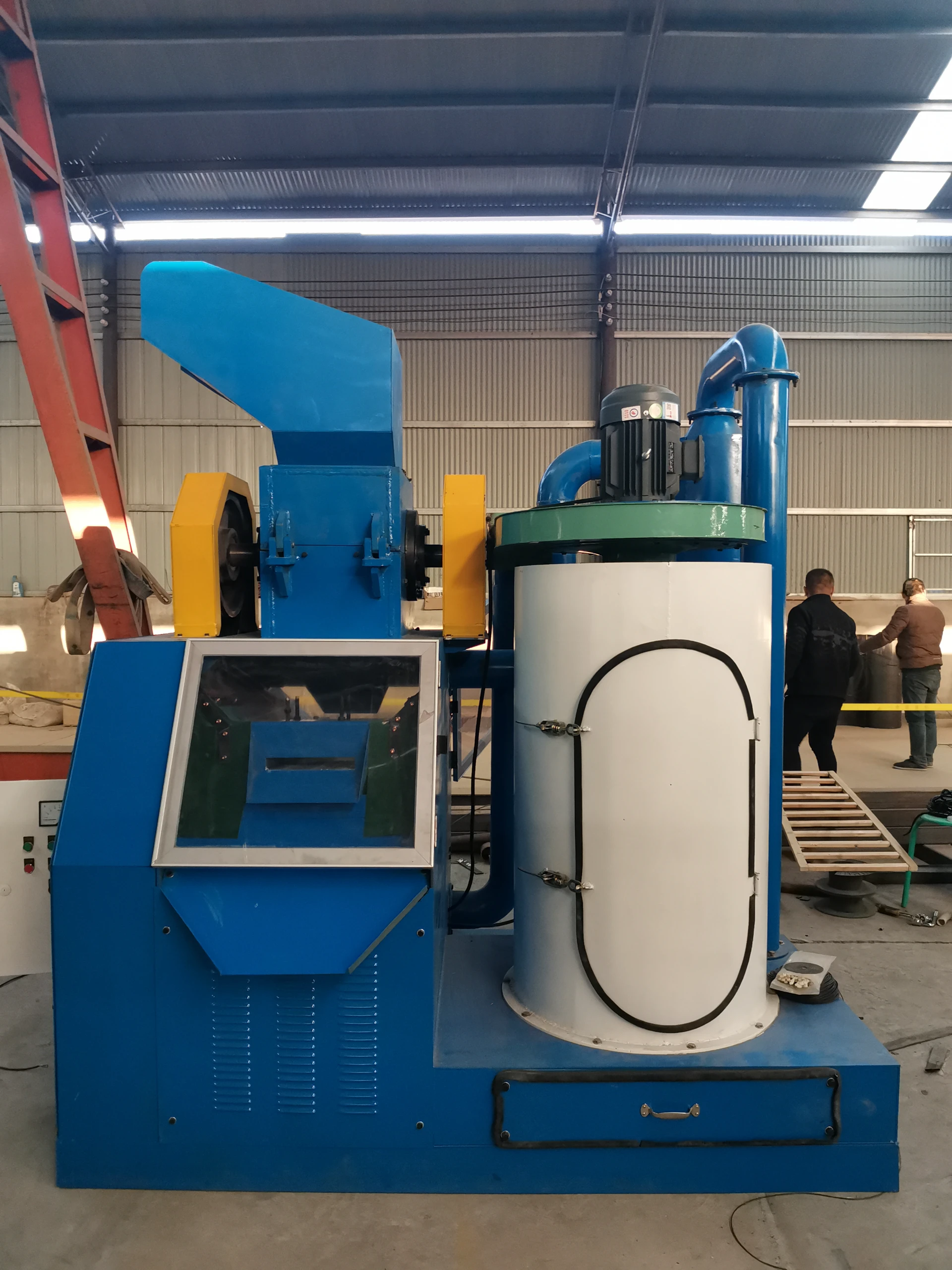

12월 . 03, 2024 18:31 Back to list
The Importance of Plastic and Metal Shredders in Waste Management
In today's rapidly evolving urban landscape, the issue of waste management has become more crucial than ever. As the world grapples with the growing volumes of plastic and metal waste, innovative solutions are needed to mitigate the environmental challenges posed by these materials. One such solution lies in the use of plastic and metal shredders, devices that play a vital role in waste recycling processes.
Plastic pollution has reached alarming levels, with millions of tons of plastic waste being generated each year. The convenience of single-use plastics has contributed significantly to this issue; however, the majority of this waste does not decompose naturally, leading to dire consequences for the environment. Shredders designed for plastic materials are instrumental in breaking down these materials into smaller, manageable pieces. This process not only facilitates easier transportation and storage but also enhances the efficiency of subsequent recycling processes.
Plastic shredders work by using sharp, rotating blades that cut through plastic waste, turning it into flakes or pellets that can be easily processed and repurposed. These machines can handle various types of plastics, including polyethylene, polypropylene, and polyvinyl chloride (PVC), making them versatile tools in the recycling industry. Once shredded, the plastic can be mixed with other recycled materials or processed to create new products, significantly reducing the need for virgin plastic production.

On the other hand, metal waste poses a different set of challenges. Metals like aluminum and steel are often discarded in large quantities, either from consumer products or industrial processes. Like plastic shredders, metal shredders utilize powerful blades to reduce metal scraps into smaller, more manageable sizes. This reduction process is crucial for several reasons. First, it allows for easier transportation of bulk metal, drastically reducing shipping costs. Second, it prepares the metal for the recycling process, making it easier to melt down and reform into new products.
The recycling of metals is particularly important, as it consumes less energy compared to the extraction and processing of virgin resources. For instance, recycling aluminum saves about 90% of the energy required to produce new aluminum from bauxite ore. By utilizing metal shredders, industries can ensure that their waste materials are not only disposed of responsibly but are reintroduced into the manufacturing cycle, thus supporting a circular economy.
Moreover, the use of plastic and metal shredders is not limited to industrial applications. Many communities and businesses invest in smaller, more localized shredding solutions to manage their waste more effectively. By shredding waste on-site, they can reduce the volume sent to landfills and increase the amount of material being recycled. This practice aligns with sustainability goals and supports efforts to promote environmental responsibility.
In conclusion, plastic and metal shredders are crucial tools in the movement toward sustainable waste management and recycling. They facilitate the efficient processing of waste materials, aiding both environmental preservation and resource conservation. As societies continue to adopt more sustainable practices, the role of shredders will become increasingly significant in minimizing the impact of waste on our planet. Embracing technologies that enhance recycling capabilities not only contributes to a cleaner environment but also fosters economic benefits by creating new opportunities and markets for recycled materials. In a world where every action counts, investing in shredding technology is a step toward a more sustainable future.
Latest news
Troubleshooting Common Eddy Separator Problems
NewsJul.04,2025
The Role of Metal Recycling Plants in Circular Economy
NewsJul.04,2025
The Impact of Recycling Line Pickers on Waste Management Costs
NewsJul.04,2025
Safety Features Every Metal Shredder Should Have
NewsJul.04,2025
How Industrial Shredders Improve Waste Management Systems
NewsJul.04,2025
How Cable Granulators Contribute to Sustainable Recycling
NewsJul.04,2025